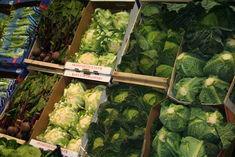
Eating brassicas after breast cancer diagnosis may help patients beat the disease, new research has found.
Consumption of the vegetables was associated with improved survival among Chinese women, according to results presented at the American Association of Cancer Research annual meeting last week.
Vanderbilt University post-doctoral research fellow Sarah Nechuta MPH PhD said: “Breast cancer survivors can follow the general nutritional guidelines of eating vegetables daily and may consider increasing intake of cruciferous vegetables, such as greens, cabbage, cauliflower and broccoli, as part of a healthy diet.”
She and her colleagues investigated the role of cruciferous [brassica] vegetables in breast cancer survival in the Shanghai Breast Cancer Survival Study, a prospective study of 4,886 Chinese breast cancer survivors diagnosed with stage 1 to stage 4 breast cancer from 2002 to 2006.
After adjusting for demographics, clinical characteristics and lifestyle factors, the researchers found cruciferous vegetable intake during the first 36 months after breast cancer diagnosis was associated with reduced risk.
Across increasing quartiles of brassica consumption, risk for total mortality decreased by 27 per cent to 62 per cent, risk for breast cancer-specific mortality decreased by 22 per cent to 62 per cent, and risk for recurrence decreased by 21 per cent to 35 per cent.
Nechuta said: “The level of bioactive compounds such as isothiocyanates and indoles, proposed to play a role in the anticancer effects of cruciferous vegetables, depend on both the amount and type of cruciferous vegetables consumed.”
She suggested that future studies with direct measurements of bioactive compounds such as isothiocyanates and host factors that influence the effects of these biological compounds be conducted to better understand the association of cruciferous vegetable intake with breast cancer outcomes.



